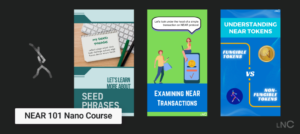Yield and Resume
Login with NEARNEAR smart contracts can yield execution, until an external service resumes them. In practice, the contract yields a cross-contract call to itself, until an external service executes a function and the contract decides to resume. This is a powerful feature that allows contracts to wait for external events, such as a response from …

